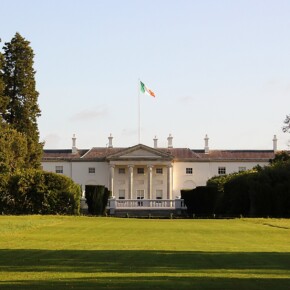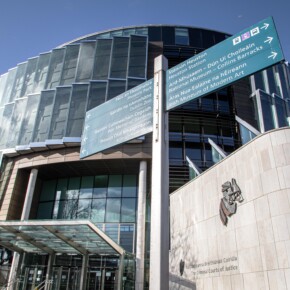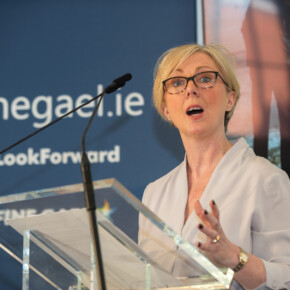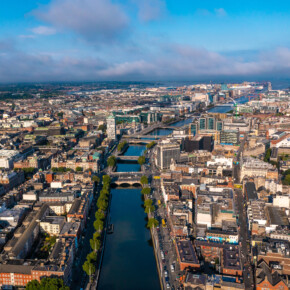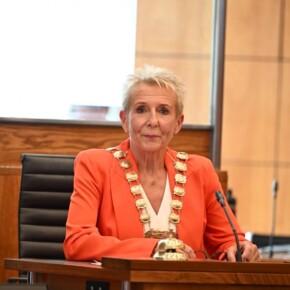The People’s Letters Page
Padraig Conlon 20 Apr 2023
Dear Editor,
It’s the time of the year when Muslims all around the globe are fasting.
But, as Upavasa of Hindus, Yom Kippur of Jews, and Lent in Christianity demonstrate, fasting is not unique to Islam.
Indeed, some form of fasting is practiced in Buddhism as well. And the Holy Quran reflects this reality in a verse which also describes the purpose of fasting, i.e., “O ye who believe! Fasting is prescribed for you, as it was prescribed for those before you, so that you may become righteous.” [Holy Quran, 2:184]
The Islamic month of Ramadan – the month of fasting started on 23rd March in Ireland.
The revelation of the Holy Qur’an to the Holy Prophet Muhammad (peace be upon him) initiated in this month and it was repeated to the Holy Prophet Muhammad (peace be on him) during every Ramadan by the Archangel Gabriel.
Fasting is not only a means of cleansing the physical body but is also a means to cleanse the soul.
Apart from restraining from food and water from dawn til dusk, Muslims also refrain from vain talk, quarrels, and fights, or any such behaviour that is hurtful and impious.
The Prophet of Islam, Muhammad (peace be on him) has instructed Muslims that:
“Fasting is a shield; so, the day one of you fasts, he should not indulge in foul talk nor should he shout. And if someone abuses him or fights with him, he should simply say to him, ‘I am fasting, I am fasting.’” During Ramadan, a Muslim learns through personal experience what hunger and poverty mean to the less fortunate members of society. It is a time for showing sympathy and empathy and being grateful to God for having the basic provisions of life. One way of rendering thanks to God almighty is by being charitable.
As a member of Ahmadiyya Muslim Community, our motto is, Love for all Hatred for none.
The current Head of the Ahmadiyya Muslim Community, His Holiness Mirza Masroor Ahmad has said:
“When fasting is based in righteousness, it produces a beautiful society, creating a spirit of sacrifice for each other.”
Keeping in mind this spirit of sacrifice, women of our community delivered gift hampers to shelter homes across Ireland.
Specifically, we delivered hampers to Lucan Homeless and Saoirse Women’s shelter in Dublin as well as a shelter home in Cork.
We also cooked food in Galway and shared it with the homeless there. And this Ramadan, our community’s youth organization also volunteered for a food drive in Dublin.
The end of Ramadan is marked by the celebration called Eid-ul-Fitr, which is observed while reflecting on the lessons learned during this Holy month.
Kind Regards,
Nudrat Jahan Malik,
Member of Ahmadiyya Muslim Community,
Bettystown, Meath
Dear Editor,
With the approaching summer heat the energy crisis recedes.
Now the government has time to have a sniff at the Irish supermarket industry.
Grocery prices have increased to a level that even the basic living items like bread, butter and milk have become luxury purchase items.
The cost of living crisis has allowed supermarket chains to crucify people to their weekly receipt.
How can current grocery prices be justified?
Prices for groceries in Irish supermarkets have a history of being higher that our European neighbours. From this base and the almost daily prices increases means the Irish consumer is paying more for a basket of grocery items.
What forces are at play when supermarkets can raise prices on a daily/weekly whim and no statutory body says ‘why’?
The government’s light touch has allowed supermarkets to adopt a brothel approach; screw the customer, take the money and back they will come.
Irish supermarkets have always feasted on the consumer.
Even when Covid-19 laid the world to waste the Irish supermarkets gorged.
Their bloated annual profits gives these companies the financial heft to absorb supply chain increases without using the consumer as a money sponge.
If grocery prices continue upwards then a people’s revolution has to take place. Nobody minds paying for groceries at a fair price, but what is going on in Irish supermarkets is shopping trolley extortion. The grandfather of angst, Morrissey, once warbled, ‘Shoplifters of the world, unite and take over’. At the rate prices are going resorting to applying a five finger discount might be the only way to put food on the table. The Irish government needs to step in and tell the supermarkets to end their addiction to upping prices. It is a habit that produces no bargains only rip-offs for consumers.
Yours,
John Tierney,
Fews,
Waterford
Dear Editor,
Congratulations to Chanel College for their wonderful achievement in support of Daffodil Day.
Congratulations also to young student Oisin Jones Furey for an excellent report on the undertaking.
It was interesting and very well written.
I hope that he and other young people will be encouraged to submit more items that give us an interesting insight to their student lives.
Thank you,
Lorna Vinall
Dear Editor,
The report of the Citizens’ Assembly on Biodiversity Loss has been hailed by environmentalists as a ground-breaking document, but it remains to be seen whether it will compel government action to save what’s left of our ravaged wildlife heritage, or prove to have been the end-product of a well-meaning but ultimately ineffectual talking shop.
Those who put together the report were ordinary people, albeit guided by experts, but the final decisions on their recommendations will be made by politicians, many of whom are beholden to powerful lobby groups and will be mindful of the likely impact their response to the report will have at the ballot box.
That’s how politics works, unfortunately. What that means it that they won’t necessarily do what is required to address biodiversity loss.
They may instead do, as they have done consistently down through the decades, what is politically expedient.
Right now, for example, the government still allows even birds that are on the endangered species list to be shot at certain times of the year if somebody offers a sufficiently convincing excuse for targeting them.
Small wonder that an estimated 63% of our bird populations are in decline.
Apart from that, I believe we need to take a serious look at the notion of shooting birds for sport.
In driven shoots semi-tame hand-reared pheasants are shot on the ground as they waddle up to their killers, trusting the approaching gunmen even as they riddle them with toxic lead.
The magnificent pheasant with its multi-hued plumage is turned into a mangle clump of feathers and bleeding flesh just to satisfy a silly whim.
We allow that, promoting it as legitimate recreation, and then wonder why there’s a lack of respect for wildlife? Some of the politicians who’ll be mulling over the Biodiversity Loss Report will be the ones who condone or encourage hare coursing and fox hunting.
Again, how can those in leadership expect to be taken seriously, or their half-hearted “save our wildlife” message to be acted on, if they see nothing wrong with setting dogs on foxes and hares for a laugh?
Like the birds on the endangered species list, hares are supposedly protected- except when the politicians allow the politically well-connected coursing folk to trap thousands of them every year to be chased and terrorized.
Like the hare, the fox is a veritable symbol of our wildlife heritage.
Yet it can be legally hounded to exhaustion ad have the skin ripped off its bones.
Its sad plight plays out in that same idyllic countryside embracing all that biodiversity that our leaders have pledged to save and nurture.
A government that allows the killing or torment of innocent birds and animals for fun is not likely to care about what happens to anything, or anyone… apart from those they depend on to re-elect them.
So, it’s up to us to make it clear to them that saving the birds and animals IS a election issue.
We need to let them know that, as a first tentative move towards safeguarding our wildlife from the cocktail of threats facing it (climate change and habitat loss mainly), we must end the man-made, human-directed scandal of “field sports.”
Thanking you,
John Fitzgerald


